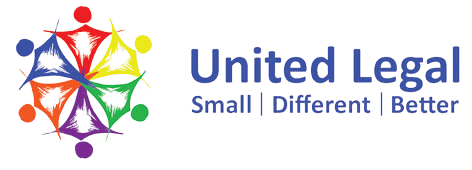Table of Contents
Institutional abuse is when an organisation is responsible for the physical or sexual abuse of a person or child, recently or in the past. If you or a person you know has suffered abuse, you can make an institutional abuse claim, demanding abuse compensation.
If you have suffered from physical or sexual abuse, financial means cannot alone compensate for the pain caused. Moreover, many injuries, depending on the severity, can scar survivors physically and emotionally throughout their lifetime.
Institutions are legally bound to follow quality care practices and avoid neglect towards any person whatsoever. According to the Care Act, one of the 10 categories of abuse, is Institutional abuse.
Institutional abuse claims are usually directed towards negligence or abuse by an organisation such as a care home, school, orphanage, etc. When institutions are unable to protect the individual from abuse by their employees, the institution is legally liable for the acts.
What are the Different Forms of Abuse?
Sometimes, situations identified as Institutional abuse, are not physically violent. Moreover, they can involve multiple other forms of control such as forcing someone to eat or drink something at a specific time daily.
However, it is easy to ignore such situations and take them for granted. Once someone seizes your right to make your decisions, legal laws consider the situation abusive.
Abusive situations can be either a single incident or a series of repetitive abusive incidents. Moreover, various policies, structures, and practices in an institution can cause abusive situations. While the list of different abusive situations, is quite extensive, here are some examples of common forms of abuse.
- Forced situations taking away the right to make decisions for oneself – This could be basic or extreme, ranging from food, and other environmental aspects, to personal clothing and belongings.
- Controlling various aspects of the victim’s life
- Using restraints, or restricting and confining victims against their will.
- Forcing victims in different situations by using one’s power inappropriately.
- Lack of flexibility of schedules – Eating or sleeping.
- Physical, emotional, financial, and verbal abuse.
It is crucial to understand and recognize the different forms of abuse, other than what’s mentioned above
How do I recognize Institutional Abuse?
Here are some common situations indicating institutional abuse
- An environment with a significant lack of hygiene and safety.
- Inflexibility in schedules.
- Individuals are not given adequate respect and privacy.
- Forcing individuals to refrain from contact with their families and communities.
- Lack of personal choice regarding food, clothing, and activities.
- Lack of respect for religion and culture.
While the list doesn’t end here, the major signs mentioned above can help you recognize any institutional abuse happening around you. Moreover, there can be other alarming signs as well such as cuts, bruises, lack of contact with family, etc.
Here’s why Institutional Abuse may happen
Similar to other forms of abuse, one cannot choose a single event as a trigger of institutional abuse.
However, here are some general causes:
- Superior management doesn’t hold staff accountable for serious actions
- Lack of supervision and training
- Lack of communication between staff
One or more abusers can be involved in an abusive situation at any institution. However, it is important to recognize and punish abuse, irrespective of the number of abusers.
When an institutional abuse claim holds the organisation accountable for its actions, it also highlights the institutional actions and failure. Moreover, the institutional abuse claim also acknowledges the survivor’s pain and provides compensation. Hence, it is important to recognize abuse and inform the relevant people.
What Evidence do I need to gather and how can I be Compensated?
A common worry of survivors is the lack of evidence to prove their abuse and therefore make an institutional abuse claim. However, the actual evidence is the survivor’s story about their abuse.
Following that, we gather any other relevant details or evidence of the incident and build your case. If the claim is successful, a survivor can be the recipient of financial redress for the following:
- Suffering due to the incident.
- Any past and future medical expenses or loss of income.
- Lack of capacity to provide care and services to a dependent individual.
- Paid and voluntary domestic assistance.
Moreover, if the survivor requires, they can also be eligible to receive an apology from the institution or specific senior administrators, responsible for the abuse.
What is the National Redress Scheme?
The National Redress Scheme allows you to make an institutional abuse claim, usually with no time limitations. However, the survivor should still make a claim as soon as possible, to end the abuse and alert the authorities.
Usually, we can settle the institutional abuse claims outside of court. However, if need be, we can also take the cases to court depending on the severity of the abuse, and other relevant reasons.
The National Redress Scheme focuses its support on children who have experienced sexual and/or physical abuse in institutions. The government introduced the sexual abuse compensation scheme after witnessing the child abuse statistics in Australia.
The Australian Royal Commission into Institutional Responses to Child Sexual Abuse recommended the initiation of a National Redress Scheme. In July 2018, they established the Scheme to run for a decade until 2028.
The National Redress Scheme acknowledges the survivors abused sexually in Australian institutions and the long-term emotional and physical harm. Moreover, the Scheme holds the recognized institutions accountable for the survivor’s trauma and abuse.
The government will provide survivors of institutional child sexual abuse with legal access to psychological services, financial redress, and direct response, according to the National Redress Scheme.
Rules to Prevent further cases of Institutional abuse
According to the Royal Commission’s final report updated in 2017, there were 189 new suggestions that also included the following
- After the approval of the Royal Commission, all government and non-government institutions must create and execute child-safe standards.
- The government will conduct regular surveys regarding the poor care practices and neglect for children in institutions.
- When child sexual abuse cases are exposed during religious confessions, the relevant institutions must report the cases to the authorities immediately.
- Any and all institutions involving child-related work will be asked to keep and update child sexual abuse records for up to 45 years or more.
Statistics
The statistics of sexual abuse cases mentioned below are alarming and remind us why it’s important to take the necessary steps to end institutional child abuse.
- Approximately 8000 witnesses provided evidence to the Australian Royal Commission, with 444 days of public hearings and 1344 written statements.
- According to the evidence, 3,489 institutions caused institutional abuse.
- Among the survivors, 63.6% were male and 36.4% were female.
- 83.8% of survivors were abused by one or more adults.
- During the first abuse, the average age for over 50% of the survivors was 10 years.
- 93.8% of abusers were male.
- On average, institutional child sexual abuse cases went on with repetitive incidents for 2.2 years.
- 2 or more institutions were responsible for the abuse of 1 in 5 survivors.
To understand the severity of the situation, everyone needs access to relevant information. With more informed individuals, it raises awareness so you can take action to seek the help you deserve.
Contact Us if you notice Institutional abuse around you
Did you recognize any suspicious activity around you and think it may be institutional abuse?
It may be an institution or your home. However, we’re here to help you get the justice you deserve.
Even if you’re unsure about the abuse, letting the right people know may end a potentially abusive situation.
As a member of society, it is every individual’s responsibility to raise awareness and report abuse when they witness it. If you believe this is the time for you or someone else to inform authorities, then seek confidential help from us. Learn more about your legal options and fight for your right to justice.
United Legal
Abuse Compensation Claims
For our legal support services Contact us at (02) 6295 2283
Visit us at







